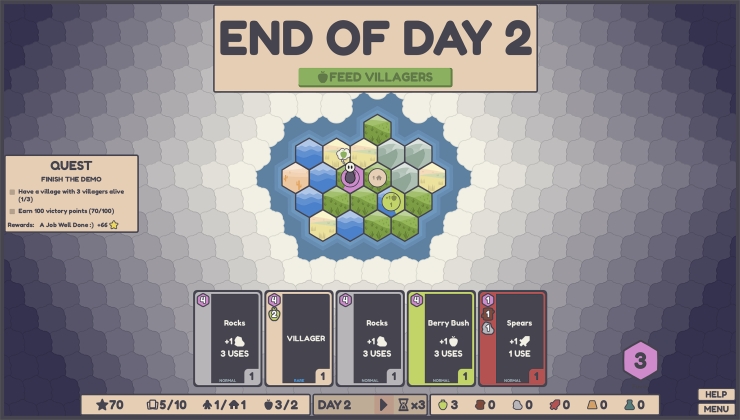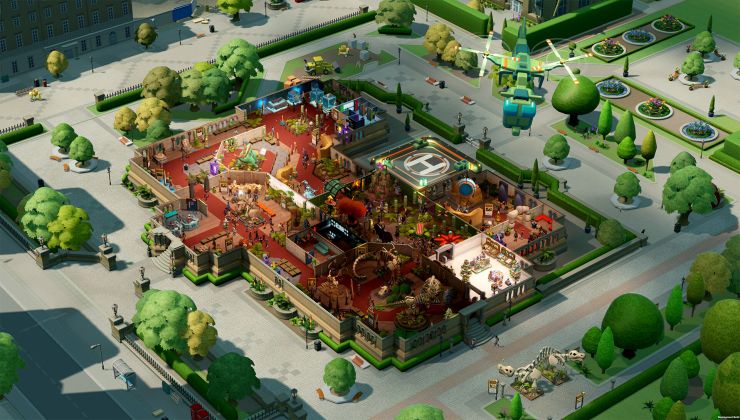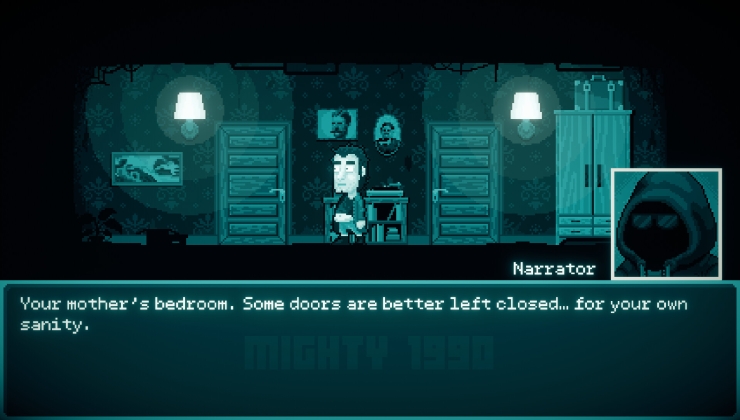It has been officially announced now, so Vulkan API it is! We are entering a new era of graphical performance.
The good news, is that Vulkan will be able to work on any chip that supports OpenGL ES 3.1 and upwards. So, it looks like it could work on cards as old as the Nvidia 400 series, but we still need to wait and see what cards the official proprietary drivers and open source drivers actually support before people with older cards get too excited.
I can't imagine them leaving it to only the newest generation of chips, as that would lock out too many people.

It may be a while before we see support for it in drivers, as the API probably isn’t completely finished just yet, and the open source drivers don’t have full OpenGL support just yet either.
Here's a choice quote from Gabe Newell, Valve:
It will be interesting to see what demos they have in store for us later at GDC!
See the official press release here.
There’s also the official Vulkan site here as well.
And finally, there’s the slides to look over that give you an overview.
The good news, is that Vulkan will be able to work on any chip that supports OpenGL ES 3.1 and upwards. So, it looks like it could work on cards as old as the Nvidia 400 series, but we still need to wait and see what cards the official proprietary drivers and open source drivers actually support before people with older cards get too excited.
I can't imagine them leaving it to only the newest generation of chips, as that would lock out too many people.

It may be a while before we see support for it in drivers, as the API probably isn’t completely finished just yet, and the open source drivers don’t have full OpenGL support just yet either.
Here's a choice quote from Gabe Newell, Valve:
QuoteIndustry standard APIs like Vulkan are a critical part of enabling developers to bring the best possible experience to customers on multiple platforms. Valve and the other Khronos members are working hard to ensure that this high-performance graphics interface is made available as widely as possible and we view it as a critical component of SteamOS and future Valve games.
It will be interesting to see what demos they have in store for us later at GDC!
See the official press release here.
There’s also the official Vulkan site here as well.
And finally, there’s the slides to look over that give you an overview.
Some you may have missed, popular articles from the last month:
All posts need to follow our rules. For users logged in: please hit the Report Flag icon on any post that breaks the rules or contains illegal / harmful content. Guest readers can email us for any issues.
I'd be (pleasantly) surprised if they really did support hardware back that far.
0 Likes
I'd be (pleasantly) surprised if they really did support hardware back that far.
I wouldn't be since OpenGL ES 3.1 is the latest release of the OpenGL ES API.
1 Likes, Who?
like!
Although the name is a bit weird ...
Although the name is a bit weird ...
2 Likes, Who?
like!
Although the name is a bit weird ...
Since the group's name is a bastardised name of a Greek deity, then why not use a bastardised name of a Roman deity for the API? ;-)
3 Likes, Who?
N00b question: won't bypassing 'error checking' etc in the driver impact system stability?
0 Likes
N00b question: won't bypassing 'error checking' etc in the driver impact system stability?N00b answer: They're not just taking OpenGL and dropping useful but slow stuff. That would be idiotic. There's simply less need for runtime validation if the API is simpler and better defined. And the layered architecture allows for a more efficient pipeline, loading only whatever validation and error checking "layers" are needed in any given situation. Is this the part you were worried about?
0 Likes
I'd be (pleasantly) surprised if they really did support hardware back that far.
To be fair, that's just the requirements for Vulkan. I don't think anyone expects the hardware manufacturers to actually go back very far in their hardware lineup with actual driver support.
Mesa might, but they're not a hardware manufacturer.
NVidia very likely will. They're internally doing a similar thing in their drivers anyway.
0 Likes
This is brilliant news.
And it actually makes me wonder how similar the APIs of DX12 and Vulkan will be. Surely there will be some convergent evolution going on here.
DX12 might be easier to wrap into Vulkan than DX10/11 was into OpenGL (especially since the later has never happened).
And it actually makes me wonder how similar the APIs of DX12 and Vulkan will be. Surely there will be some convergent evolution going on here.
DX12 might be easier to wrap into Vulkan than DX10/11 was into OpenGL (especially since the later has never happened).
0 Likes
like!It means Volcano. Since volcanoes bring up material from deep within the crust and they're very powerful, I'd say it's a very appropriate name, especially since the new naming trend includes Mantle and Metal. It stands out, yet follows the trend a bit.
Although the name is a bit weird ...
"Mantle plumes" would be weird for a name :P
"Volcanoe" is the meh version of the word.
It also makes sense since Vulkan will be a chewing up and spitting out of Metal :)
0 Likes
Just because it means Volcano, doesn't mean it they did that on purpose. Maybe they picked it cause it sounded cool or something.
0 Likes
Just because it means Volcano, doesn't mean it they did that on purpose. Maybe they picked it cause it sounded cool or something.
Most likely cause it's going to erupt with amazing performance and kill DirectX (we all hope anyway)..lol ;)
0 Likes
They did a lot more work than I expected! At page 8 of the slides there is a screenshot of the Vulkan debugger developed by Valve and LunarG with some API calls. I wonder how close the names are to Mantle API although at low level the actual calls are probably very similar to each other.
The Vulkan working group is also interesting, it seems all relevant industry and more is onboard. Just discovered that Continental is also in the working group... they must be using graphics API for tires tassellation... (...stupid joke, I couldn't resist, sorry!)
The Vulkan working group is also interesting, it seems all relevant industry and more is onboard. Just discovered that Continental is also in the working group... they must be using graphics API for tires tassellation... (...stupid joke, I couldn't resist, sorry!)
0 Likes
What is the earliest Intel chip that supports OpenGL ES 3.1?
0 Likes
the Logo so brings back my 3DFX memories, and I know its different but still... can't help it :)
0 Likes
What is the earliest Intel chip that supports OpenGL ES 3.1?
Compute shaders were introduces with OpenGL 4.3 so Haswell or newer if I remember correctly
0 Likes
They did a lot more work than I expected! At page 8 of the slides there is a screenshot of the Vulkan debugger developed by Valve and LunarG with some API calls. I wonder how close the names are to Mantle API although at low level the actual calls are probably very similar to each other.
The Vulkan working group is also interesting, it seems all relevant industry and more is onboard. Just discovered that Continental is also in the working group... they must be using graphics API for tires tassellation... (...stupid joke, I couldn't resist, sorry!)
Yeah, moreover, this screenshot is taken on X :P
I wonder how close Mesa (Gallium) IR and SPIR-V are ?
0 Likes
Here is an excellent article about SPIR-V:
http://www.g-truc.net/post-0714.html#menu
http://www.g-truc.net/post-0714.html#menu
0 Likes
API Calls look similar to Mantle... looks like Vulkan is about an open Mantle. Great move that AMD ditches Mantle as well :)
Too many organizations try to ride a dead horse in this business.
Too many organizations try to ride a dead horse in this business.
0 Likes
Did anyone address the issue of one thread bottleneck? According to [this diagram](https://i.imgur.com/x1CJO96.png), Vulkan doesn't offer the ability to submit GPU commands from multiple threads and requires one dedicated thread to do it (Mantle and DX12 allow it).
0 Likes
@Shmerl you're mistaken by that one. The important part is, that the command buffers (objects/materials) are done in seperate threads. Mantle we don't know - they never told us for sure, but I guess they did it the same way as Vulcan now (Vulcan is highly inspired by Mantle), but I'm sure that DX12 has a command queue as well, out of msdn blogs:
The only serial process necessary is the final submission of command lists to the GPU via the command queue, which is a highly efficient process.
The only serial process necessary is the final submission of command lists to the GPU via the command queue, which is a highly efficient process.
0 Likes












 How to set, change and reset your SteamOS / Steam Deck desktop sudo password
How to set, change and reset your SteamOS / Steam Deck desktop sudo password How to set up Decky Loader on Steam Deck / SteamOS for easy plugins
How to set up Decky Loader on Steam Deck / SteamOS for easy plugins
See more from me